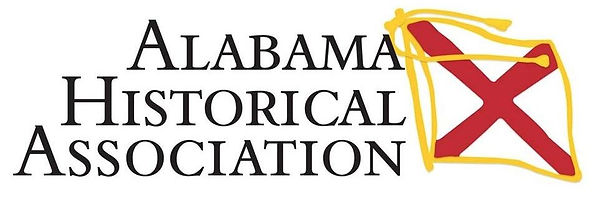
Hayneville
Founded in 1820 by settlers from the Edgefield, Abbeville, and Colleton Districts of South Carolina on property purchased from the U.S. Land Office at Cahaba. Officially named Hayneville in 1831 to honor South Carolina Senator Robert Y. Hayne. Hayne's 1830 debates with Daniel Webster in the U.S. Senate over the nature of the federal union earned fame for the South Carolinian across the South and remain classics in American political discourse. [1994]
Location: East Tuskeena Street (AL Hwy 21) in front of Lowndes County Courthouse, Hayneville.
32.18391 N 86.58036 W
Lowndesboro
Settled before 1820 by planters from South Carolina and Virigina. First called McGill's Hill, it was incorporated, 1832, as Lowndesboro in honor of William Lowndes. There was a brief skirmish here between Forrest's troops and Wilson's raiders, April 10, 1865. 1978
Location: South Broad Street north of US 80 in Lowndesboro.
32.28079 N 86.60996 W
Shiloh Primitive Baptist Church
Organized in 1850 as Shiloh Baptist Church on the Pritchett Plantation, later known as the R.D. Spann Place on Highway 21, North, 3 miles north of Hayneville. Primitive later added to the name. Building originally constructed of logs, then a wooden-board structure added as the community grew. Understanding the need to educate blacks in the late 1800s and early 1900s, the church served as both a school and a place to worship God on the Lord’s Day. In 1875 the Pilgrim Rest Primitive Baptist Association was organized at the Spann Place site, the Elder Morris Jaree, Pastor. Church remodeled in 1960 under the leadership of Elder J.H. Betts. 1970 building addition made under the leadership of Elder J.S. Johnson. Congregation in 1990 decided to purchase parcel of land to relocate some 3 miles north of original site. New building dedicated 1995. Congregation has taken active role in social ministry contributing to the well being of the community. Cornerstone reflects its philosophy: “We’ve come this far by Faith.”
[2002: U.S. Hwy 80, Lowndesboro]
Location: AL Hwy 21 south of US 80.
32.24427 N 86.52713 W
The Crosby Water System - "The Well"
On land donated by Ed Crosby, a group of African American community leaders had a well dug in January 1955 to provide the people of Gordonville with running water. The Well, the first black-owned water system in Alabama, initially had just four spigots. Incorporated as the Crosby Water System in 1963, the company’s initial board members included Rev. J.C. Lawson, Lee Jackson, Sr., R.C. Maye, Coley Whiting, Russell Stallworth, Sidney Logan, Sr., J.T. Haynes, Albert Ross, Nap Nelson, and Cornelius Williamson. The system was expanded in the same year to pump water from its 3,000-gallon tank to the homes of the original thirty-nine stock holders. As the community grew, its need for water exceeded the capacity of The Well and the water rights were sold in 1994.
Listed on the Alabama Register of Landmarks and Heritage, June 2012
[2015: Wall Street, Gordonville]
Location: Nearest PO address is 649 Wall St (CR 17), Gordonville
32.15212 N 86.71354 W
Varner’s Cash Store
On August 20, 1965, Jonathan Myrick Daniels, a 26-year-old Episcopal seminarian from Keene, New Hampshire, was shot dead at point blank range here. He was a graduate of Virginia Military Institute and was attending Episcopal Theological School, Cambridge, Massachusetts. Daniels came to Selma in March, 1965, and led a movement to integrate the Episcopal Church there. On August 14, he went to support a demonstration in Fort Deposit. The group was arrested, brought to the Hayneville jail, and held for six days. Released on August 20, Daniels and the others walked from the jail to Varner’s Cash Store to buy soft drinks. As they approached, Tom Coleman emerged with a shotgun, raised it, and fired. Daniels pushed Ruby Sales, a seventeen-year-old Student Nonviolent Coordinating Committee worker, out of the way before being killed by the blast. As the others fled, Coleman fired again, wounding Father Richard Morrisroe, a Catholic priest. Coleman was tried for manslaughter and acquitted by an all-white jury. Hours after the verdict, Federal Judge Frank M. Johnson, Jr. dismissed all charges from the Fort Deposit demonstration. Daniels is honored on August 14th on the calendar of the Episcopal Church.
[2015: Hayneville]
Location: 206 South Commerce St., Hayneville
32.18133 N 86.58078 W